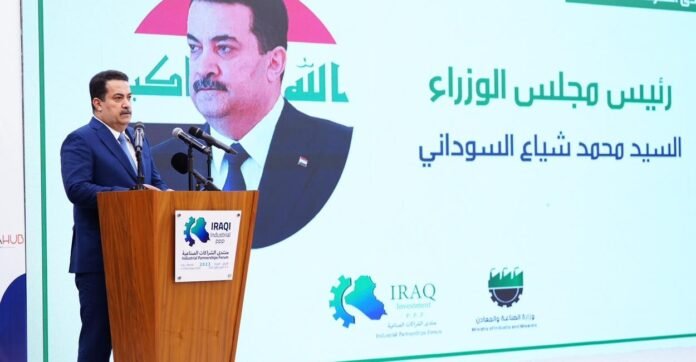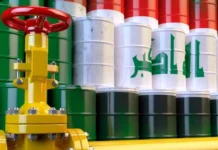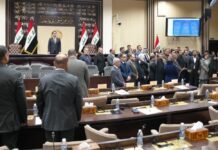On Saturday, Prime Minister Muhammad Shiaa Al-Sudani stated that Iraq’s natural resources qualify it to meet local product demands and export surplus goods.
During the launch of the Industrial Partnerships Forum in Basra, Al-Sudani delivered a speech emphasizing that the current government has made economic reform one of its top five priorities. He acknowledged that in Iraq, where the economy solely relied on oil, it is vital to diversify by investing in the industrial sectors, agriculture, tourism, and trade. This approach will help transform the mono-economic state’s philosophy and bring much-needed economic reform.
He said, “Iraq has the natural resources to establish a sustainable advanced industry that meets local needs and exports outside the country.”
Al-Sudani emphasized the need to diversify the economy, support existing industries, and invest in available resources. He also noted that Iraq cannot continue to be solely a consumer market for imported goods, and practical and procedural developments must be made in light of this goal and priority.
During a recent statement, he emphasized that the state cannot fulfill the job demands of graduates and job seekers, as it is not feasible for the state to employ such a large number of people. This is particularly true given the fact that we are discussing human capital in this country, with the majority being young people.
The Prime Minister emphasized that one job opportunity in the industrial sector leads to the creation of 4-6 indirect job opportunities in other sectors. He stressed that the government’s top priority is to invest in human capital and equip it with the necessary skills, training, and capabilities.
It is time for our economy to be linked to the global economic cycle and establish a strong industrial base that supports stability, said the speaker.
Industrial entrepreneurship should be supported to meet local needs while also integrating with regional and international industries.
Al-Sudani noted that the private sector currently owns 81% of the total number of existing industrial units, as per the 2020 estimates. In contrast, government companies account for 11%, while mixed companies only make up 1%. Although the government general industrial companies still lead the contribution to total industrial production, this data highlights the significant role played by the private sector in the industrial sector.
He stated that the private sector should contribute to industrial production in the food, pharmaceutical, construction, and mining industries.
Our government companies were greatly affected by harmful commercial partnerships.
In his statement, Al-Sudani discussed successful partnerships that have helped to increase production lines and train workers. He emphasized the importance of empowering the private industrial sector by promoting ownership of industrial units and supporting production.





